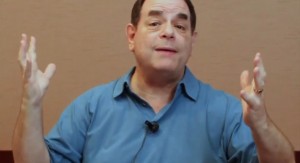 Marc Prensky has spoken to audiences around the world. He is passionate about giving kids the best possible chances in life and as an educator wants to see our approach to education change to better suit the needs of the 21st Century.
Marc Prensky has spoken to audiences around the world. He is passionate about giving kids the best possible chances in life and as an educator wants to see our approach to education change to better suit the needs of the 21st Century.
Marc was a keynote speaker at the Worcestershire Learning Technologies Conference in the UK and in this podcast I discuss with his views on building schools of the future.
As a passionate advocate for preparing learners for an ever changing world Marc challenges us all to consider how best we can prepare learners for the 21st Century. He is interested in the challenges we face as educators and how the education process needs to change to accommodate new technologies and the opportunities that they offer.
Almost unique to Marc's presentation technique is his effort to connect with learners in front of an audience of educators. A group of young people ranging from 11 to 17 joined Marc to answer some of his questions about their experience of school. Marc discussed with the group their thoughts about schooling, their use of technology and their hopes for the future. The students were well able to express their views and made it very clear that listening to young people is an essential activity for teachers and school leaders if they are to develop an education process that will meet the needs of every student.
In this Podcast Marc's views on learning and the opinions of the learners combine to give some valuable insights into how we need to rethink our learning spaces. The discussions also tell us that educators have a superb resource to draw on when thinking about the School of the Future - their students.




Although I agree with much of what Prensky says, it is important to take all school functions into account when talking about the designs for the future.
He gives an example, saying some people say keeping children feeling safe is an important function. Then gives his answer - build a hotel.
This is not helpful.
Keeping children feeling safe is one of many functions which of course does not stand alone.
..notes taken during the interview
"There's no reason to bring people into a school building". The same's probably true of offices. Wouldn't it be great if schools were more advanced than the workplace?
"Changing is risk taking" - very true - but not news. The world is changing more rapidly and is therefore increasing risky. This isn't the case just for schools but for the world - it's too obvious a statement.
...although, it is good to see the risks recognized.
However, I'm not persuaded that the management of change has been answered (so far) by the interview, and (for me) this is key question.
How do we reconcile the risk of innovation with the consequences of failure? If teachers feel safe in a classroom environment then it's because it's less risky (e.g. in terms of results and inspections). To ignore this seems to be encouraging others (ie teachers and *esp* students!) to take the risks without bearing the consequences yourself (*cough* Mr Prensky!).
I don't know how this is resolved, although I think I'd be pretty nervous about an inspection if my classroom was a "rainforest in a barn" (if I were a teacher). Still the management of risk associated with innovation is the topic I want to hear addressed.
I don't want to hear about the promised land (or should that be barn?). I want to hear step-by-step directions on how to get there... including where the potholes are and how you're going to avoid them. Again - I'm not a teacher - perhaps you guys already have the roadmap (and my childrens' teachers are keeping it secret)?
"the adult of the future" - That's the question (nice one DT)! Perhaps the programme should be called building "adults for the future" - not "schools".
"Building (okay - maybe teaching) adults for the future" - now THAT'S something I can get excited about - and that's what I want you to do for my children.